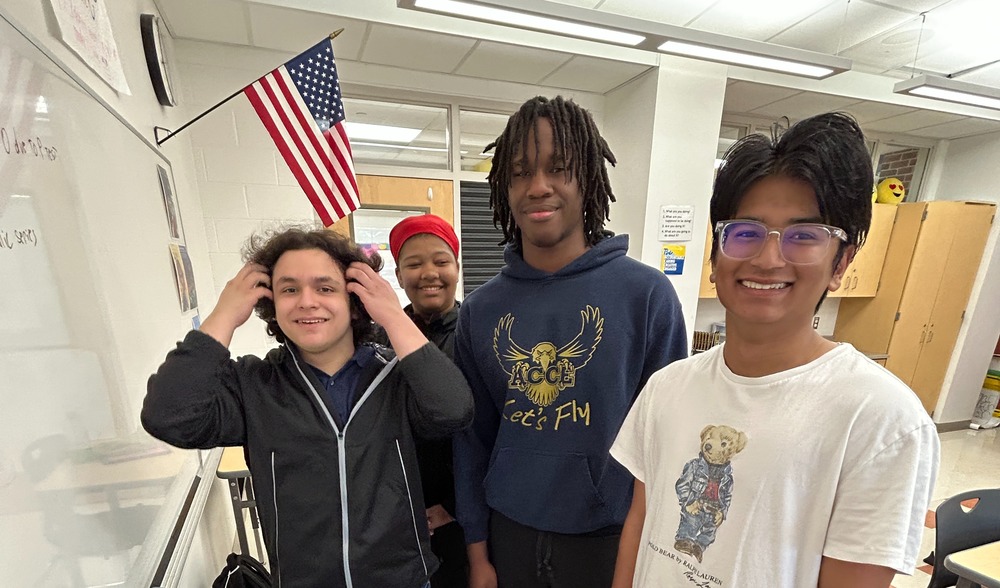Last school year, all but one of our high schools offered Advanced Placement (AP) classes—college-level courses that prepare students for their post-high school education while earning college credit and placement. In 337 class sections and across 29 different subjects, more than 4,500 City Schools high school students learned advanced content, created a sense of community, and prepared for college—a 30% increase in two years.
What does this experience provide students from their perspective? Meet four former students who took AP Calculus at the Academy for Career and College Exploration (ACCE): Jordan, Audrey, Oscar, and Sudarshan.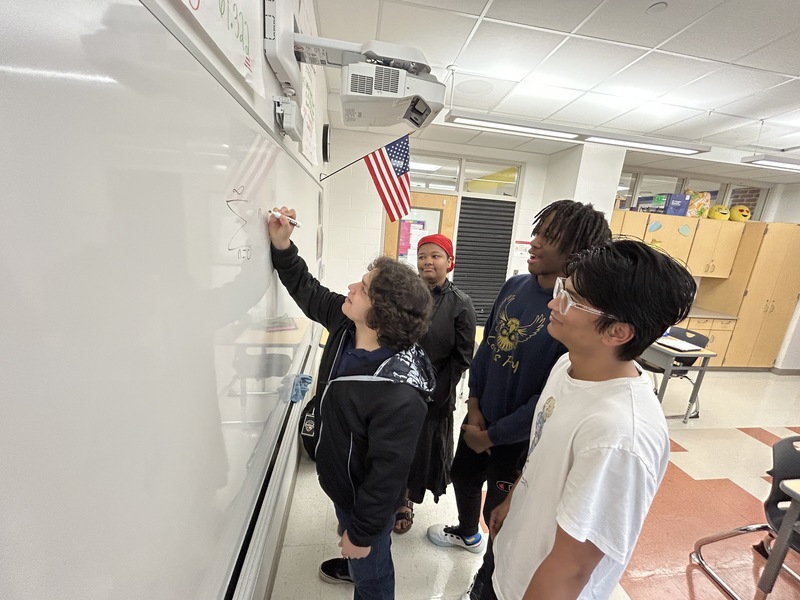
Sudarshan, an ACCE graduate and rising junior at Johns Hopkins University (Hopkins), commented that college calculus “was different but understandable” because he took Mr. Liu’s AP Calculus class. Audrey, also a rising junior at Hopkins, echoed, “The college classes weren’t foreign. I was used to this.” And Oscar, who will be a sophomore at Swarthmore College, added, “My college math classes were way easier to understand” because of his high school preparation.
ACCE special education, math teacher, and City Schools 2025 Teacher of the Year Jevons Liu has strongly advocated for creating AP courses. When he joined the faculty in 2019, he wondered why AP Calculus wasn’t offered, “especially at a school with Black and Brown students.” He considers calculus a “big gatekeeper” to other subjects and many careers, and “kids need to be ready for it in order to fulfill their dreams and aspirations.”
Like all new courses at City Schools, AP classes at ACCE are based on students’ interests. Mr. Liu worked with the school’s math lead and administrators, gathering support at all levels to develop advanced math courses. “We believe in our students,” he says. “We know they can do it.”
ACCE began offering AP Calculus in 2021 and added AP Statistics in 2022. When the school’s math teachers saw students’ growing interest in AP math, they advocated for and initiated an AP Precalculus course last school year, and expect more than 75 students to take AP math courses this school year.
The students’ interest has continued. “Oh, the real-life applications to calculus are interesting!” Oscar realized. The AP class inspired him to be curious about other math content in college, and “I’ve decided on a life goal: math.”
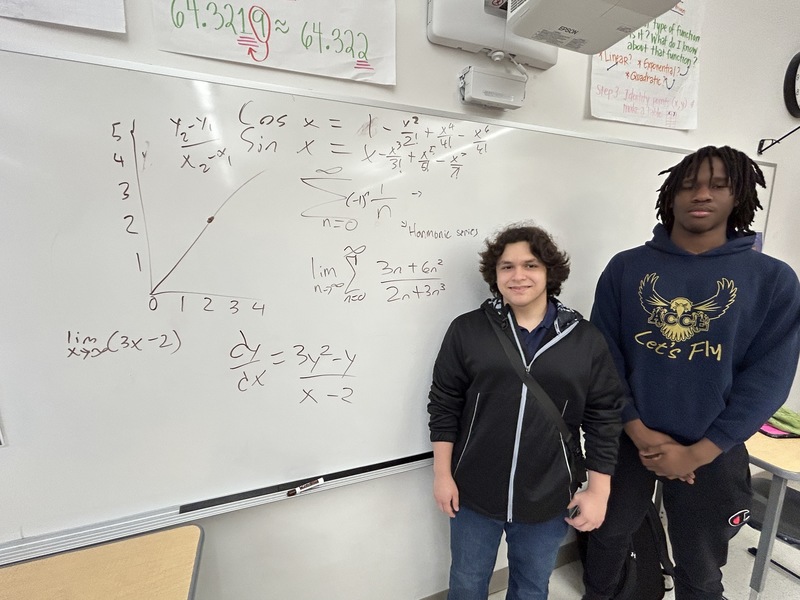 “I’m actually interested in doing this thing,” reported Jordan, a current ACCE student who will also take AP English Language and AP Biology this year. He hopes to continue his interest in math at the Air Force Academy.
“I’m actually interested in doing this thing,” reported Jordan, a current ACCE student who will also take AP English Language and AP Biology this year. He hopes to continue his interest in math at the Air Force Academy.
Jordan sees AP courses as “a big opportunity.” He was somewhat intimidated at first, but AP Calculus “pushed me in ways that I hadn't been pushed before.” When I go to college, I’ll know how to be responsible and how to focus. It’s prepared me for the future.”
Audrey confirmed the future benefits. “What you learn you can apply to the real world. You’re not limited because you’ve seen the work before.”
Sudarshan agreed. “The courses were helpful in pushing me forward. They were also helpful in teaching me how to ask for help. We had a cohort where we learned from each other.”
“I was prepared not to be scared of what college would be like, “shared Oscar. “I had a taste of it already. It prepared me to know how to deal with what I didn’t know. The students in the class formed a community. We were always there to help each other out.”
In addition to classes during the school day, students can seek help during optional Coach Class office hours and in study groups that meet on weekends. 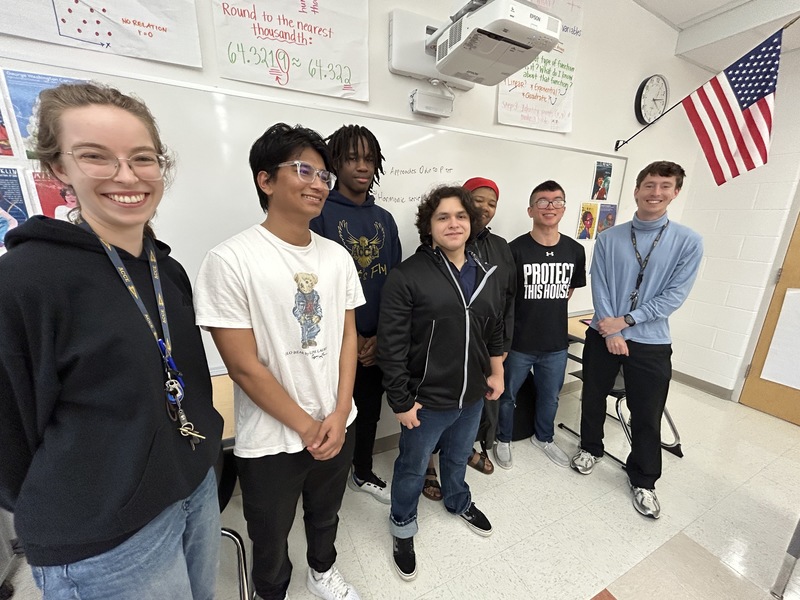
Exams administered by College Board at the end of the school year measure how well students have learned content in 38 subject areas. Qualifying scores can earn students college credit and advanced placement in college. This past year, 4,059 students took AP exams in 35 subjects. The number of students who earned a qualifying score of 3 or higher jumped by 11 percentage points over the past two years.
“When you know there’s a College Board exam at the end of the year, things become serious,” said Jordan. “You’re competing against the rest of the country.”
“How we compete against others furthers the sense of community,” said AP Statistics teacher Peder Delia. “Students want the challenge and want as much work as they can handle. We’re holding them to a higher standard, but we’re creating a space where it’s also ok to fail, learn, and grow.”
Said AP Precalculus teacher Jennifer DeJong. “These courses are challenging. We want students to know it's normal to ask for help and be comfortable with that.” 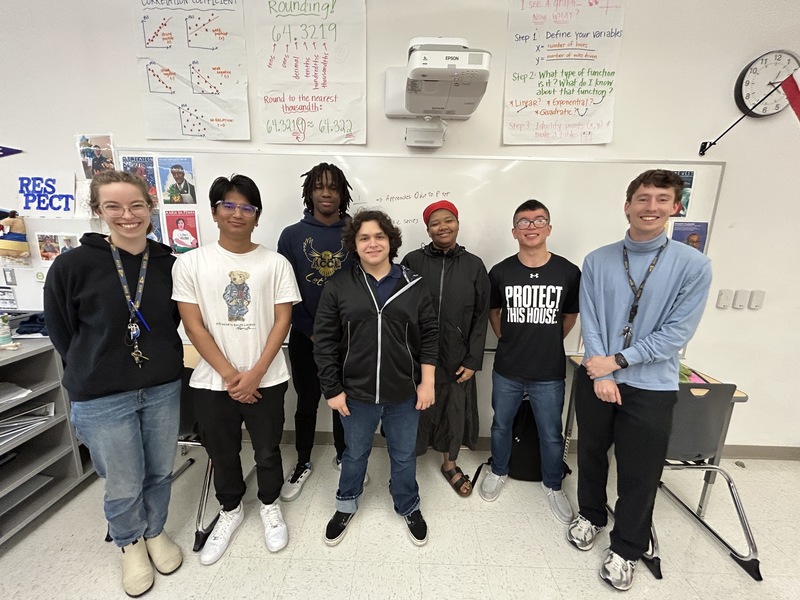
City Schools develops AP courses with the goal that a student attending any high school in the district has the opportunity to select from at least several options. The Gifted and Advanced Learning team meets with school principals and administrators to review current offerings, explore prospective new options, and discuss the sequencing of aligned courses, including honors and related AP courses. Teachers planning on teaching AP courses attend an AP Summer Institute site for formal training before teaching the course, and City Schools content offices provide AP-specific professional development (PD) sessions during district PD days.
“Expansion of AP courses across the district has been a deliberate effort to confront and dismantle what is frequently referred to as the soft bigotry of low expectation,” says Dennis Jutras, City Schools’ Coordinator of Gifted and Advanced Learning. “Access to college-level courses for all students who wish to challenge themselves must not be limited by zip code.”

